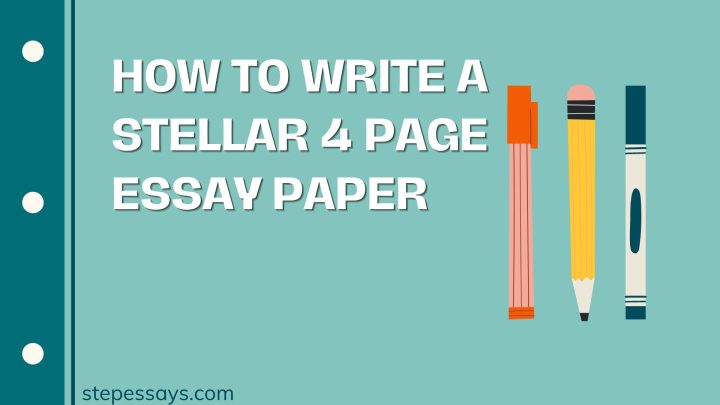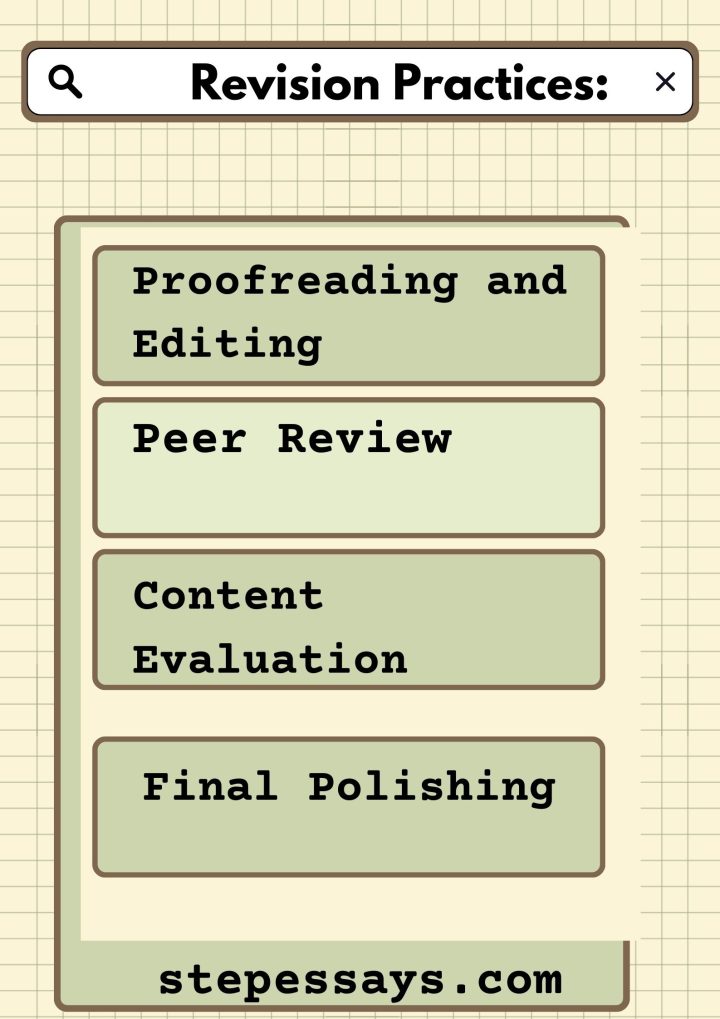Abstract:
In academia, the four-page essay paper stands as a quintessential exercise for students to refine their critical thinking, analytical, and writing skills. Despite its brevity, crafting a stellar four-page essay requires careful planning, concise articulation of ideas, and effective utilization of limited space. This guide explores the step-by-step process of composing a top-notch four-page essay, encompassing pre-writing strategies, structural considerations, effective writing techniques, and tips for revision. By following these guidelines, students can navigate the complexities of academic writing and produce compelling essays within constrained parameters.

essay
Introduction:
In the field of academic writing, the 4-page essay stands as a compact yet potent medium for conveying ideas, arguments, and insights. Despite its brevity, this form of writing demands a strategic approach, requiring authors to distill complex concepts into concise prose while maintaining clarity and coherence. In this essay, we embark on a journey to unravel the art of crafting a stellar 4-page essay, looking into the process of topic selection, thesis development, evidence incorporation, and persuasive argumentation.
As we navigate through the nuances of this writing process, we shall uncover the strategies and techniques necessary to construct a compelling and well-structured paper that captivates readers and leaves a lasting impact. Through meticulous planning, diligent research, and meticulous attention to detail, we aim to empower writers to harness the full potential of the 4-page essay format, effectively communicating their ideas and perspectives with precision and eloquence.
Pre-Writing Strategies:
Understand the Prompt
Brainstorming
Research
Outline Creation
Outline creation serves as a pivotal pre-writing strategy in the development of a structured and cohesive four-page essay. It involves organizing and delineating the main points, arguments, and supporting evidence that will be presented in the essay. By crafting an outline, students can clarify their thoughts, establish the logical flow of ideas, and ensure coherence in their writing. Each section of the outline corresponds to a specific aspect of the essay, such as the introduction, body paragraphs, and conclusion, providing a roadmap for the subsequent writing process.
Moreover, the outline allows students to assess the balance and relevance of their ideas, making it easier to identify any gaps or areas requiring further research or elaboration. Additionally, the outline serves as a reference point during the writing process, guiding the writer in maintaining focus and staying on track with the intended argumentative trajectory. Thus, investing time and effort in outline creation lays a solid foundation for the development of a well-structured and compelling four-page essay that effectively communicates the writer’s ideas and arguments.
Understanding the Task
Selecting a Topic
Research and Analysis
Crafting a Thesis Statement
With a solid grasp of the topic and supporting evidence, formulate a clear and concise thesis statement. The thesis serves as the cornerstone of your paper, articulating the central argument or perspective you intend to convey. Ensure that your thesis is specific, debatable, and reflective of the scope of your essay. It should provide a roadmap for the reader, outlining the key points you will address in the subsequent pages.
Structural Considerations:

essay
Introduction (Approx. 1/2 Page):
Body Paragraphs (Approx. 2 Pages):
Conclusion (Approx. 1/2 Page):
Incorporating Counterarguments:
Writing the Conclusion for your Essay:
Revision Practices for an Essay:

Revision Strategies
Proofreading and Editing
Peer Review
Final Polishing
Final polishing is the last crucial step in the revision process for a four-page essay paper, ensuring that the essay is refined and ready for submission. During this stage, writers focus on fine-tuning the details of the essay, paying attention to factors such as clarity, coherence, formatting, and citation accuracy. Final polishing involves meticulously reviewing the essay for any grammatical errors, punctuation mistakes, or typographical issues, as well as ensuring consistency in language and style throughout the paper.
Writers should also double-check the formatting of the essay, including margins, font size, spacing, and citation style, to ensure compliance with academic guidelines. Additionally, final polishing may involve making minor adjustments to sentence structure or phrasing to enhance readability and flow. By dedicating time to final polishing, writers can ensure that their essay is polished to perfection, leaving a lasting impression on readers and upholding the highest standards of academic integrity.
Effective Essay Writing Techniques:
- Clarity and Conciseness: Strive for clarity and conciseness in your writing. Use clear and straightforward language to convey your ideas effectively. Avoid verbosity and unnecessary repetition.
- Precision in Argumentation: Be precise and specific in your arguments. Provide concrete evidence and examples to support your claims. Avoid making vague or unsupported assertions.
- Critical Analysis: Engage in critical analysis of the topic by examining various perspectives and considering counterarguments. Demonstrate your ability to evaluate complex issues thoughtfully.
- Engaging Writing Style: Adopt an engaging and persuasive writing style that captivates the reader’s attention. Use rhetorical devices, such as anecdotes, analogies, or vivid imagery, to enhance the appeal of your writing.
Frequently Asked Questions
How to create a perfect outline for a 4 essay paper
Effective Techniques and Tips for Crafting a Stellar 4-Essay Paper
